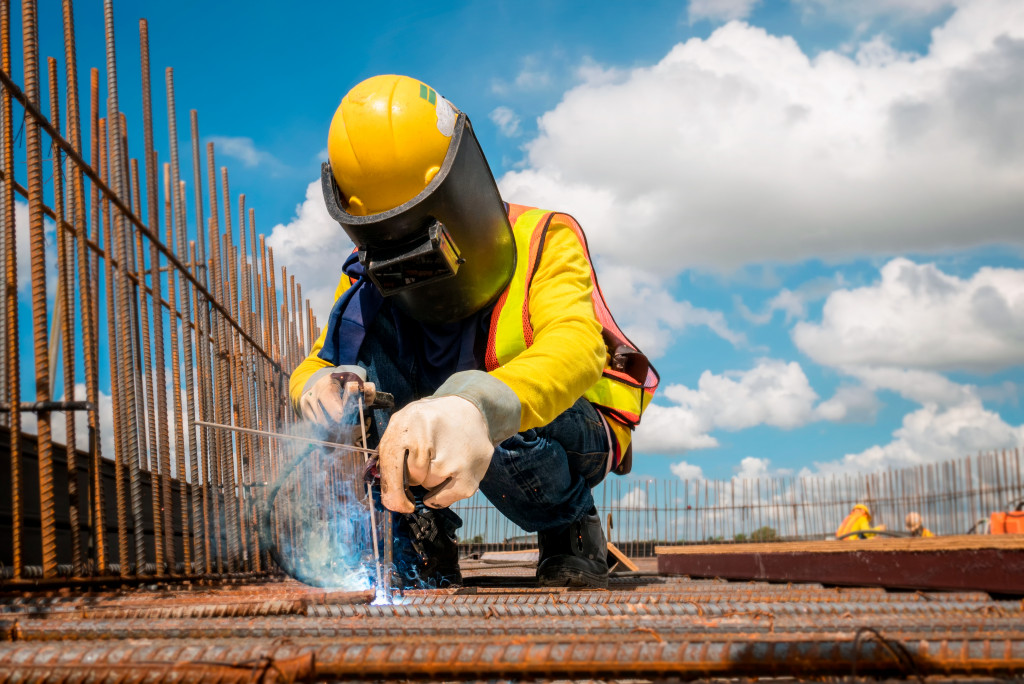- Specialized training programs in the construction industry cover heavy equipment operation, safety protocols, and technical skills.
- The Construction Skills Certification Scheme (CSCS) in the UK validates skills with different cards representing expertise levels.
- Welding and fabrication training teaches essential skills for constructing infrastructure components like bridges and buildings.
- Enrolling in specialized training programs equips individuals with the necessary skills for success and high-paying opportunities in infrastructure construction.
The infrastructure construction industry offers some of the most sought-after jobs in the market today. Professionals in this field have the opportunity to work on essential projects, including roadways, railways, water systems, and airports, to name a few.
However, working in infrastructure construction does not come easy. The job requires skills that can only come from extensive experience and exposure to specialized training programs. This blog explores some of the specialized training programs available for professionals in infrastructure construction and highlights the benefits of enrolling in these programs.
Heavy Equipment Operation Training
The use of heavy equipment in infrastructure construction is essential for the success of any project. Heavy equipment operators are professional drivers who are trained to operate complex construction machinery. For individuals who aspire to become heavy equipment operators, enrolling in a heavy equipment operation training program is the ideal way to get started. These programs are designed to teach students the following:
Proper Operation and Maintenance of Heavy Equipment
In a proper operation and maintenance training course, students are taught how to handle heavy machinery safely and efficiently. These courses focus on the operational techniques of different machines, such as bulldozers, backhoes, loaders, and excavators.
They also cover preventive maintenance practices, understanding machine controls, safety protocols, and basic troubleshooting. This training ensures that operators are capable of performing their tasks effectively while minimizing the risk of equipment malfunction or accidents on the construction site.
Safety Protocols
Safety is paramount in any construction environment, particularly when heavy machinery is involved. Therefore, specialized training programs give considerable emphasis to safety protocols.
In these courses, students learn about the specific safety standards and regulations relevant to construction sites, such as the usage of personal protective equipment (PPE), the implementation of lockout/tagout procedures, and adherence to Occupational Safety and Health Administration (OSHA) guidelines.
Technical Skills
Technical skills are the bedrock of any profession, and this is particularly true for heavy equipment operators. These skills encompass a broad range of competencies, including understanding mechanical principles, the ability to read and interpret blueprints, knowledge of construction math, and the ability to perform typical tasks like grading. Training courses for heavy equipment operation often include classroom instruction, hands-on practice, and a strong focus on developing these technical skills.

Construction Skills Certification Scheme in the UK
The Construction Skills Certification Scheme (CSCS) in the UK is an industry-standard credential that validates a professional’s skills in the construction industry. It is widely recognized by employers and contractors and is often a prerequisite for those seeking employment in infrastructure construction. This scheme offers several types of cards, each representing a different level of skill and expertise in various construction disciplines. Here are the types of cards:
Blue Card
The Blue Card under the Construction Skills Certification Scheme (CSCS) is designed for skilled workers who have achieved a level 2 NVQ or SVQ. It serves as proof of the holder’s qualifications and competence in their specific occupation. This card carries significant weight in the industry and is widely recognized by employers and contractors. To obtain your CSCS blue card promptly, you must pass the CITB health, safety, and environment test and provide proof of your qualifications.
Black Card
The Black Card in the CSCS scheme is intended for managerial roles within the construction industry. This card requires a level 5, 6, or 7 NVQ or SVQ, demonstrating that the holder possesses a comprehensive understanding of construction operations and safety protocols, as well as strong leadership and management skills. Obtaining a Black Card signifies that the professional is competent to oversee and manage significant aspects of infrastructure construction projects, thereby contributing to the overall success and safety of the operation.
Red Card
The Red Card under the CSCS scheme is designed for individuals who are just entering the construction industry or are in the process of training. This card signifies that the holder is gaining the necessary skills and knowledge and is committed to developing their proficiency in infrastructure construction. It’s a stepping stone for aspiring professionals, illustrating their pursuit of excellence and adherence to industry standards. This card often paves the way for progression towards advanced certifications such as the Blue and Black cards.

Welding and Fabrication Training
Welding is an essential skill for infrastructure construction professionals. Welders are responsible for joining metal parts together, making it an essential skill for constructing everything from bridges to high-rise buildings and transportation systems.
Specialized welding training programs are designed to equip potential welders with the skills they need to join metal structures effectively. Moreover, these programs teach their students proper metal fabrication and cutting techniques.
Furthermore, welding and fabrication training programs also cover the use of different types of welding equipment, safety protocols when working with hot metal, and best practices for ensuring structural integrity.
Specialized training programs provide a way for individuals to improve their skills, expand their knowledge, and become experts in their field. For those who want a career in the infrastructure construction industry, enrolling in specialized training programs is the best way to acquire the necessary skills. From heavy equipment operation to safety training, welding, and fabrication to construction management, each of these specialized training programs provides a path for aspiring professionals to succeed in the infrastructure construction industry. By enrolling in these programs, students not only set themselves up for success but also gain high-paying job opportunities within the industry.
